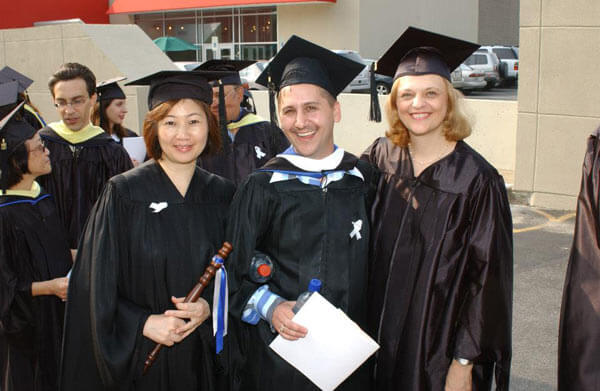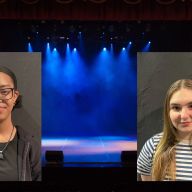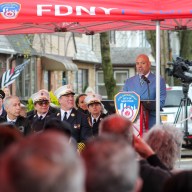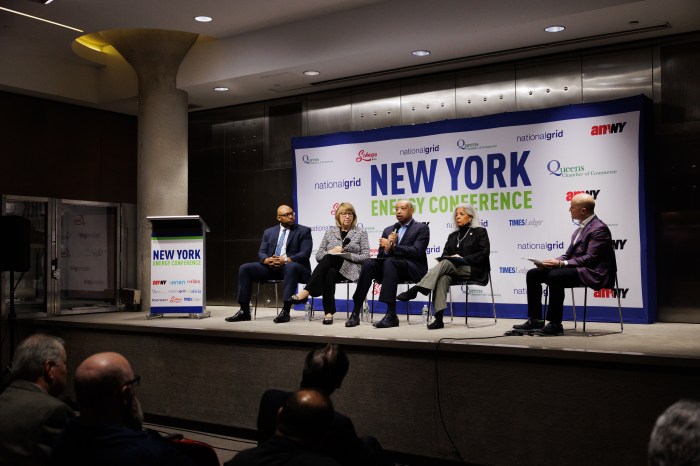By Kevin Zimmerman
Many older students returning to the classroom discover the experience is similar to accepting additional work as a weekend sales clerk or evening bartender.
“For adults it’s like adding a part-time job to the responsibilities they already have,” said Wynne Ferdinand, assistant director of LaGuardia Community College’s Bridge to College and Careers program. “Many find the biggest challenge is the schedule.”
Unlike 18- and 19-year-olds entering college mere months after finishing high school, more than half the students in LaGuardia’s program are 26 or older. None of them possess a high school diploma and many haven’t been in a classroom setting for a decade or more. Combine that with juggling full-time work and family obligations, said Ferdinand, and it’s easy to see why the Bridge to College and Careers program fills a niche for non-traditional students.
“Our program puts the attention on the next steps,” said Ferdinand. “Once a student earns their diploma, there are staff advisers on site who assist them with applications and financial aid forms. It helps make a smooth transition between work and life.”
From the outset, the Bridge to College and Careers program, now in its seventh year, works to ensure adult students succeed.
In order to be accepted into the program, potential students take part in group interviews and community building activities, said Ferdinand. They also meet with admission officers and academic advisers.
“It’s really about improving their career prospects,” said Ferdinand.
At LaGuardia, students quickly move from the GED portion into the degree component of the program.
An individual who matriculates in September, spends 14 weeks in a GED-preparation course before taking the test in December. Those who pass then enter degree or certificate programs during the spring semester in March.
A lot of these students gravitate toward LaGuardia’s health and human science programs, said Ferdinand. Many start on the licensed practical nurse track, which leads them to an associate’s LPN degree. But others opt for an EMT or community health worker certificate.
“The thing about the health program is it’s a nice ladder to other things,” said Ferdinand. “You can get an associate’s or go for a certificate program, which you can complete in under six months.”
LaGuardia also provides students with the opportunity to follow a science or business track.
Across town at Queens College, the Adult Collegiate Education program also focuses on the older, non-traditional students. But at the Flushing campus, these students are a bit further along in their careers and lives, but still lack an undergraduate degree.
“So many of our students have tried this at one point and have even earned credits,” said Richard Adams, director of Queens College’s ACE program. “They have the motivation to return to school, but this is a monumental task and they may be apprehensive.”
To help alleviate some of their students’ concerns, Queens College’s ACE program, which is celebrating its 50th anniversary this year, keeps older learners together for their first few classes, said Adams. Once they earn those initial credits, students then fan out across campus to the various departments to earn their bachelor’s degrees.
“It’s great for them to be together for the first eight or so courses,” said Adams. “They feel like they’re ready to tackle their degree programs.”
ACE also allows its students to transfer up to 36 life achievement credits toward a bachelor’s. For example, said Adams, someone who has worked for a large CPA firm has mastered college level accounting skills and, once they put a portfolio together on past projects, earns credit for those achievements.
Although Queens College’s ACE program has changed since 1963 — when many of the applicants took advantage of free tuition and attended classes just for the sake of learning — older students still must maintain a balance between family, work and school.
Adams believes the ACE program helps its students achieve that.
“Queens College offers a quality education and a great price,” said Adams. “And the ACE program focuses on adult students who are different from traditional students and who need more flexibility.”































